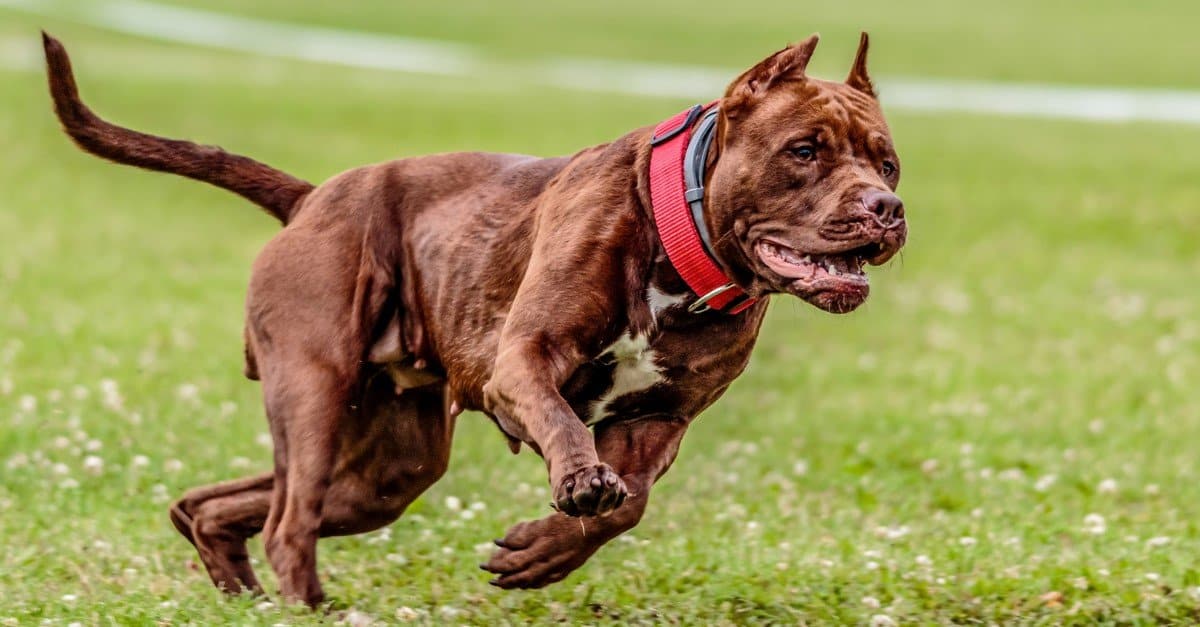
When discussing aggressive dog breeds, it’s important to tread carefully, as breed-specific aggression is a complex issue with multiple contributing factors. Labelling an entire breed as aggressive oversimplifies the matter and perpetuates misconceptions. While certain breeds might statistically show higher incidents of aggression, it’s essential to remember that individual behaviour is influenced by genetics, upbringing, training, socialization, and environmental factors.
One breed often mentioned in conversations about aggression is the Pit Bull. However, the term “Pit Bull” encompasses several related breeds, including the American Pit Bull Terrier, American Staffordshire Terrier, and Staffordshire Bull Terrier. These breeds have historically been bred for various purposes, including bull-baiting and dogfighting, which has led to certain genetic traits that might predispose some individuals to aggressive behaviour. However, it’s important to note that these breeds can also be affectionate, loyal, and gentle companions when raised in loving environments.
The Rottweiler is another breed sometimes labelled as aggressive. Originally bred as herding and guard dogs, Rottweilers are known for their protective nature. They can be wary of strangers, which, if not managed through proper training and socialization, might lead to aggressive behaviour. Responsible ownership and positive training methods are crucial in ensuring Rottweilers grow into well-balanced and well-behaved dogs.
German Shepherds, often employed as police or working dogs, are also part of the conversation. Their intelligence, loyalty, and versatility make them a popular choice for various roles. However, these very traits can contribute to aggressive tendencies if not channelled correctly. German Shepherds require substantial mental and physical stimulation, and a lack of proper outlets for their energy can lead to behavioural issues.
It’s worth noting that aggression in dogs can be a result of various factors. Poor socialization during a dog’s critical developmental period, traumatic experiences, medical conditions, and improper training techniques can all contribute to aggressive behaviour. Any breed, regardless of its genetic predisposition, can exhibit aggression when subjected to unfavourable circumstances.
Addressing the issue of aggression in dog breeds requires a multifaceted approach. First, responsible breeding practices are crucial. Breeders should prioritize temperaments alongside physical traits to ensure that puppies are less likely to display aggressive tendencies. Second, early socialization is paramount. Introducing puppies to a wide range of people, animals, and environments during their critical socialization period can significantly reduce the likelihood of fear-based aggression later in life.
Furthermore, proper training methods that focus on positive reinforcement and establishing clear communication between the dog and owner are essential. Harsh punishment or aversive techniques can exacerbate aggression and cause more harm than good.
In conclusion, attributing aggression solely to specific dog breeds is an oversimplification that fails to consider the complex interplay of genetics, upbringing, training, and environment. While some breeds may have a higher potential for aggressive behaviour due to historical breeding practices, it’s crucial to approach the issue with nuance and responsibility. Responsible ownership, early socialization, and positive training methods are key components in fostering well-adjusted and non-aggressive dogs, regardless of their breed.










 " >
" >
 " >
" >